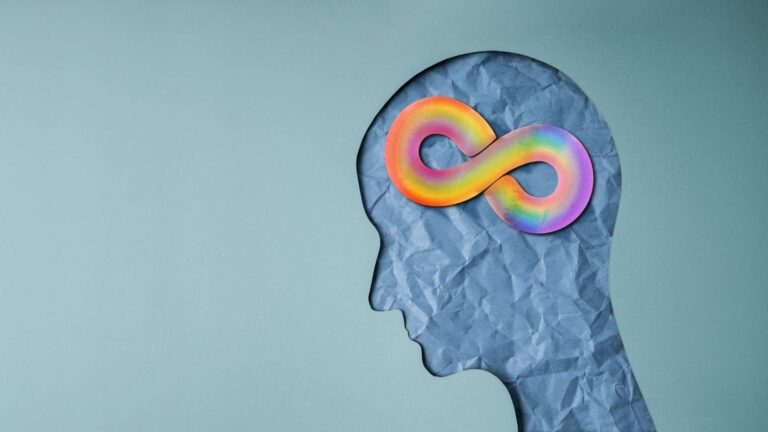Table of Contents
Is there a cure for severe autism?
Autism, or autism spectrum disorder (ASD), affects millions of people around the world, and in recent years, we have learned much more about the different forms it takes. Within this spectrum, there is a new category that has gained attention: profound or severe autism. But what exactly does this diagnosis mean, and how does it affect those who experience it?
One of the most common questions facing families and caregivers is, “Is there a cure for severe autism?” The short answer is no. Autism does not have a cure, as it is not a disease but a neurodevelopmental condition that accompanies a person throughout their life. Individuals with a diagnosis of severe autism or profound autism face more intense difficulties as they present symptoms of autism to a greater degree of severity and, therefore, require a greater level of support. However, it is essential to remember that there are meaningful interventions and supports, such as ABA therapy, that can make a difference for individuals with severe autism.
In this ABA Centers of Connecticut blog, we will explore severe autism, its symptoms, and the resources available that can make a real difference.
Defining Severe Autism

Severe autism, or profound autism, refers to those cases within the autism spectrum in which symptoms are more severe. People with profound autism usually have significant difficulties in communication, social interaction, and behavior, often requiring constant support in their daily lives. This diagnosis goes beyond the typical features of ASD, encompassing profound levels of difficulty that significantly impact their daily functioning.
In 2021, the New Lancet Commission Report introduced the term “profound autism” to denote the condition of those with more profound signs of the autism spectrum. Those who receive the diagnosis have an IQ below 50, lack speech skills, and are dependent on the support of an adult caregiver.
Severe Autism Symptoms
Typical features of autism include repetitive behavior patterns, sensory processing problems, and barriers to social interaction. However, when discussing severe autism symptoms, Autism Research includes a number of additional disorders, such as:
- Severe Nonverbal Autism: Individuals with this type of autism may exhibit minimal verbal skills or be nonverbal. They rely on nonverbal cues or technological aids to communicate.
- Cognitive Impairment: Individuals with profound autism may exhibit learning and developmental complications.
- Reduced Adaptive Functioning: Adaptive problems of individuals with severe ASD hinder their independence, self-care, and social participation, making it necessary to require 24-hour care.
- Seizure Disorders: Some individuals with profound autism have unique sensory and behavioral characteristics that may lead them to experience epileptic episodes. Some may exhibit repetitive movements such as rocking or hand-waving, which can be mistaken for stimming, a stereotypical autism behavior.
- Self-injurious Behaviors: Some self-injurious behaviors exhibited by persons with severe ASD include head banging or biting. The neurological disturbance of a seizure may trigger these behaviors.
- Anxiety Disorders: People with more severe ASD symptoms often experience additional mental health challenges, such as anxiety or depression. More significant difficulties in social communication, interaction, repetitive behaviors, and sensory sensitivities can contribute to the development of anxiety and phobias, significantly impacting daily life.
Severe Autism Nonverbal: The Greatest Challenge
One of the most challenging aspects of profound autism is the lack of verbal communication. Individuals with nonverbal autism do not use speech as a means of communication, but this does not mean that they have nothing to say. Through tools such as augmentative communication devices (AAC) or pictograms, many are able to express their needs and desires effectively.
It is essential to understand that even if they cannot speak, their emotional and cognitive intelligence may be present. The challenge lies in finding the right way to facilitate their communication and learning.

Why Recognizing Profound Autism Matters?
Until recently, developmental experts considered ASD a spectrum with no precise subcategories, making it challenging to customize treatments. Recognizing profound autism as a unique category allows healthcare professionals and educators to tailor intervention plans better. Each person on the autism spectrum has unique needs and strengths, so identifying each individual’s specific challenges makes it easier to find appropriate support, differentiating them from those with a more moderate condition.
Correct use of the term “profound autism” brings greater precision to the broad spectrum of autism, helping parents, service providers, and the general public better understand the needs of these individuals and the interventions they require. As Alison Singer, autism advocate and member of The Lancet Commission on the Future of Care and Clinical Research in Autism, notes, “Concise and meaningful terms like profound autism simplify the process of determining appropriate care, allowing for quicker and more effective interventions.”
Updated Insights About Severe Autism
Science has advanced in understanding how individuals experience severe autism. Recent research has indicated that individuals with this type of autism exhibit structural differences in the brain and specific genetic variations. These findings open the door to possible more precise interventions, although we still have a lot to learn.
In addition, research is underway to investigate how prenatal stress, exposure to certain substances, and other environmental factors may be related to an increased risk of profound autism.
In a Frontiers investigation of profound autism, 57% of the people who participated met one or both criteria for profound autism (severe nonverbal autism and low IQ). Of that group, a higher percentage of women had profound autism compared to men (70% vs. 54%), although the differences are not very clear as the margins of error overlap. In addition, more people of color met the criteria for profound autism compared to white people (69% vs. 52%).

ABA Therapy: A Proven Methodology to Support Individuals with Profound Autism
Although a diagnosis of profound autism can be daunting, it is essential to understand that all individuals on the spectrum, regardless of the severity of their symptoms, deserve and should receive support. ABA (Applied Behavior Analysis) therapy has proven to be highly effective in working with individuals with severe autism. ABA focuses on modifying problem behaviors, improving communication skills, and promoting independence through positive reinforcement. While severe autism presents unique challenges, ABA therapists can design interventions focused on the specific needs of each individual, helping them develop critical skills and reduce behaviors that may hinder their daily lives.
For example, an ABA therapist can work on teaching a child with nonverbal autism to use pictograms to ask for food or water, which can reduce their frustration and improve their quality of life. Although progress cannot be immediate, it is possible with the proper intervention.
In addition, ABA therapy also serves as a support for parents facing the complexities of raising a child with autism. With ABA therapy, parents and caregivers can learn strategies and acquire tools to create a supportive environment at home, fostering inclusion and family unity.
Recognizing the growth and developmental potential of individuals with profound autism and ensuring access to specialized interventions such as ABA therapy can significantly assist individuals with autism and their families.
Finding Autism Support for Severe ASD
Families, caregivers, and children with severe ASD face additional challenges in their daily lives. However, recognizing and valuing the individuality of each person on the autism spectrum can open the door to unique care tailored to their specific needs.
At ABA Centers of Connecticut, we understand that receiving a diagnosis of autism, especially profound autism, can be confusing and distressing. Still, it is possible to empower your loved one, help them develop their skills, and celebrate every little accomplishment!
We are here to walk with you and guide you on the path to the fantastic opportunities that ABA therapy offers for children with any level of autism. Call us at (844) 395-0448 or fill out our online form – talk to an ASD expert now!









